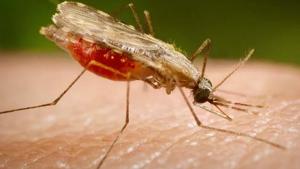Fostering the China-Africa cooperation for the elimination of Malaria
21-26 January 2019, Shanghai and Beijing China – The WHO Representative, Dr Tigest Menegstu led the country delegation to a workshop on ‘the China-Tanzania Malaria Prevention and Control Demonstration Project, ‘in Shanghai from the 21-24th January 2019 and a high level Coordination Management Committee (CMC) Meeting’ in Beijing on the 26th January 2019 to finalize the protocol for phase two of the The China-UK-Tanzania partnership Pilot Project.
The project conducted jointly by IHI and the National Institute for Parasitic Disease (China CDC) in southern Tanzania has revealed that malaria can be reduced by over 80 per cent if a new Chinese model is applied in curbing one of the leading tropical killer diseases.
Implementation was from 2015-2018 using the Chinese model scientifically known as “1-3-7” which was customized to 1-7 in the context of Tanzania.
The China’s 1-3-7 strategy is extensively adopted in different types of counties (geographic regions) for reporting of malaria cases within 1 day, their confirmation and investigation within 3 days, and the appropriate public health response to prevent further transmission within 7 days. The project provided the screening and antimalarial services in 18 villages of nearly 60,000 population in Muhoro and Ikwiriri within Rufiji District. In both areas, NMCP delivered LLINs as part of the national efforts. The project conducted weekly focused screening and treatment (mRCT) which is actually reactive community testing by community health workers through mobile health teams in hot spot areas identified based on stratification using recent weekly data from the facilities (passive case detection). “The project achieved in successful implementation of improved community-based surveillance and malaria case management with 80-90% parasitological examination rate, standardized treatment rate and case reporting rate,” said Dr. Honorati Masanja of Ifakara Health Institute.
He added that: “There is also indication of significant reduction of malaria cases at health facilities, laying the platform for policy, technology and product transformation. This calls for partnerships between governments, local and private entities at different levels to join forces against malaria.”
Important milestones have been reached from the in-depth consultations made between the Senior Government officials from China and the Tanzanian delegation led by the WR, Dr Mengestu accompanied by Technical Officer Malaria from the Country Office, Ministry of Health officials and Ifakara Health Institute (IHI) experts. It was agreed that the success of phase I needs to be sustained and translated to phase two for 18 months beginning May/June 2019. Phase two intervention will take place in six wards in order to further generate the necessary evidence to translate and adapt the Chinese experience in malaria control in Africa.
The China- UK- Tanzania Tripartite pilot project on malaria control is the first project of its kind for the Government of China. It focuses on using the Chinese experience in malaria control to the African context, hence fostering the China-Africa collaboration. It also combines local expertise and technology from Africa. Overall, the China-Tanzania malaria prevention and Control Demonstration Project is an excellent platform to enhance the Government of the People’s Republic of China in its contribution to the global health agenda through the China-Africa Health Project and China Foreign AID. The Coordination Mechanism Committee (CMC) had its official meeting for the first time and approved the ‘road-map ‘for the demonstration project.




